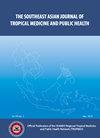痴呆诊断和替代治疗:治疗方案的最新进展
IF 0.1
4区 医学
Q4 INFECTIOUS DISEASES
Southeast Asian Journal of Tropical Medicine and Public Health
Pub Date : 2023-07-18
DOI:10.9734/ajmah/2023/v21i10874
引用次数: 0
摘要
痴呆症是世界卫生组织在其《2017-2025年公共卫生应对痴呆症全球行动计划》中确定的一项全球健康负担。本研究旨在确定阿尔茨海默病及相关痴呆(ADRD)治疗方案的疗效。痴呆症治疗的开始一直是医疗保健专业人员面临的一个重大困境,在选择适当的药物组开始治疗时,需要仔细考虑所需的具体治疗类型。为了开展我们的研究,我们检索了PubMed Central和Cochrane数据库,以确定比较不同痴呆治疗方案的比较试验。我们的目的是评估各种治疗方法对不同类型痴呆的有效性。总的来说,我们回顾了40多篇论文,这些论文对这些治疗方案的比较结果提供了有价值的见解。在我们的分析中,我们发现轻度至中度认知功能障碍(MMSE 19至26)和新诊断的阿尔茨海默病可以用胆碱酯酶抑制剂(多奈哌齐、加兰他明和利瓦斯替明)治疗;由于疗效相似,可根据临床医生和/或患者的偏好进行选择。中度至晚期痴呆(MMSE 10至18):美金刚(10mg,每日两次)是胆碱酯酶抑制剂的推荐选择。总之,很明显,痴呆症药物的可用选择本质上是有限的,而用于评估进一步治疗方案的资源仍然有限。因此,迫切需要优先考虑这一领域的进一步研究和全面评估。本文章由计算机程序翻译,如有差异,请以英文原文为准。
Dementia Diagnosis and Alternate Treatment: A Recent Update on Treatment Options
Dementia is a global health burden identified by the World Health Organization in its global action plan on the public health response to dementia 2017-2025. Our study aims to determine the efficacy of treatment options in Alzheimer’s disease and related dementia (ADRD). The initiation of dementia treatment has consistently posed a significant dilemma for healthcare professionals, necessitating careful consideration when selecting the appropriate group of medications to commence therapy, considering the specific type of treatment required. To conduct our study, we searched PubMed Central and the Cochrane database to identify comparative trials that compared different dementia treatment options. Our objective was to evaluate the effectiveness of various treatment approaches across different types of dementia. In total, we reviewed over 40 papers that provided valuable insights into the comparative outcomes of these treatment options. In our analysis, we have found mild to moderate cognitive dysfunction (MMSE 19 to 26) and newly diagnosed Alzheimer's disease can be treated with a trial of Cholinesterase inhibitors (Donepezil, Galantamine, and Rivastigmine); choice can be based on clinician and/or patient preference, as efficacy is similar. Moderate to advanced dementia (MMSE 10 to 18): Memantine (10 mg twice daily) is a suggested option with Cholinesterase inhibitors. In conclusion, it is evident that the available options for dementia medication are inherently limited, while the resources allocated to evaluate further treatment alternatives remain constrained. As a result, there is an urgent need to prioritize additional research and comprehensive assessment in this field.
求助全文
通过发布文献求助,成功后即可免费获取论文全文。
去求助
来源期刊

Southeast Asian Journal of Tropical Medicine and Public Health
PUBLIC, ENVIRONMENTAL & OCCUPATIONAL HEALTH-INFECTIOUS DISEASES
CiteScore
0.40
自引率
0.00%
发文量
0
审稿时长
3-8 weeks
期刊介绍:
The SEAMEO* Regional Tropical Medicine and Public Health Project was established in 1967 to help improve the health and standard of living of the peoples of Southeast Asia by pooling manpower resources of the participating SEAMEO member countries in a cooperative endeavor to develop and upgrade the research and training capabilities of the existing facilities in these countries. By promoting effective regional cooperation among the participating national centers, it is hoped to minimize waste in duplication of programs and activities. In 1992 the Project was renamed the SEAMEO Regional Tropical Medicine and Public Health Network.
 求助内容:
求助内容: 应助结果提醒方式:
应助结果提醒方式:


